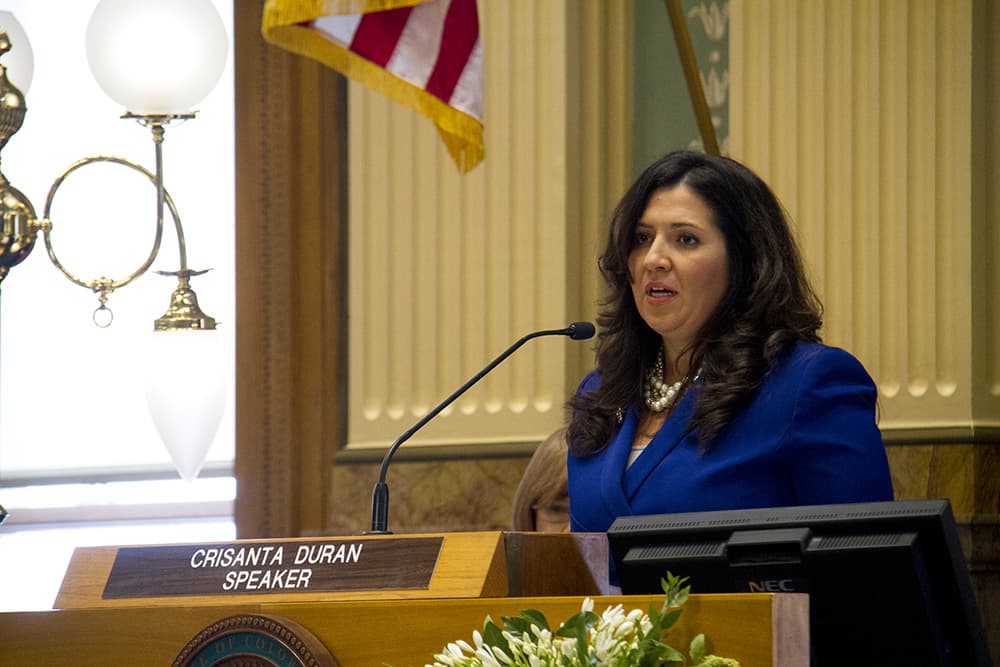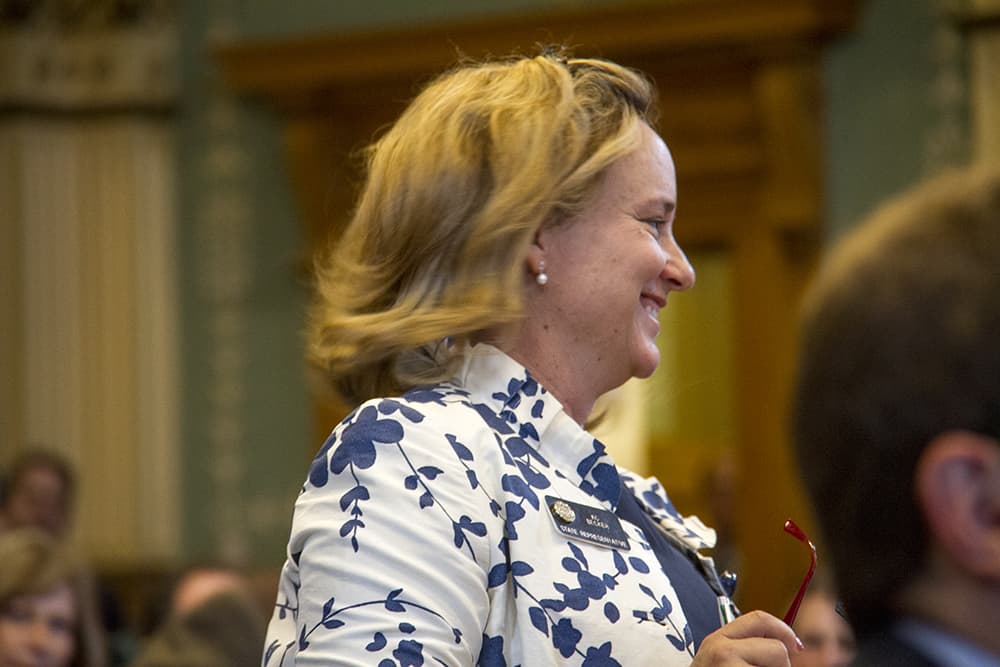
State Sen. Jerry Sonnenberg's bill to restore money to Colorado hospitals and protect their funding going forward has a big condition on it: a $670 million reduction in the revenue cap that limits how much Colorado can spend. That's how the Sterling Republican is trying to make a major Democratic policy goal -- reclassification of the hospital provider fee -- that's also critical to the hospitals in his rural district palatable to other Republicans.
But the reduction in the revenue cap, "that's a problem for us," said state Rep. K.C. Becker, House Majority Leader and Sonnenberg's Democratic co-sponsor on the hospital provider fee bill.
These are the trade-offs Republicans and Democrats will be debating as they consider a budget that Speaker of the House Crisanta Duran called the "most challenging I've seen during the time I've served as a legislator." The hospital provider fee bill is a separate effort from the main budget bill but one that seeks to ameliorate the biggest cut in the $26.8 billion budget, the cut that made it possible to balance the budget at all.
The hospital provider fee is a fee collected on patient revenue and matched by federal dollars, then redistributed to hospitals to increase reimbursement for Medicaid patients and cover uncompensated care. Last year and this year, the money brought in by the fee has put the state over the revenue limit set by the Taxpayer's Bill of Rights, triggering a requirement for refunds to taxpayers that would have to come from other parts of the budget, like schools and transportation.
Democrats want to reclassify the fee into an enterprise fund, a type of standalone business operation to which TABOR doesn't apply. Until now, most Republicans, including Sonnenberg, have been opposed.
This year, lawmakers were facing the possibility of returning $264 million to taxpayers. Instead, they reduced the amount of hospital provider fee money the state collects and spends by $264 million and balanced the budget without any refunds. With the foregone federal match, hospitals will lose out on $528 million in funding for the 2017-18 fiscal year. Rural hospitals will be particularly hard-hit.
In debate on the Senate floor Wednesday, some Democrats objected to removing the hospital funding. Sen. Kent Lambert, a Colorado Springs Republican and chair of the Joint Budget Committee, said the real reason the budget is so tight is not TABOR but rising Medicaid costs. Without the cut, the entire budget falls apart.
"This is the most difficult and the most important bill to pass," he said of the reduction in the hospital provider fee. "There is no reason to continue with this budget at all if this bill does not pass. The fact is, there are a lot of moving parts in this."
Sonnenberg's bill, SB17-267, would make the hospital provider fee an enterprise fund, reduce the revenue cap that applies to the rest of the budget by $670 million, ask departments to submit budgets that are 2 percent lower next year than this year, dedicate money for a $1.2 billion transportation bond without a tax increase and reallocate money to rural schools and roads. It would dramatically reshape the budget.
Also moving through the legislative process is a bill that would ask voters to approve a 0.62 percent sales tax increase for a $3.5 billion transportation bond and additional funding for transit and local transportation projects.
Gov. John Hickenlooper called it "the most complicated array of legislation" he had seen as governor. Democrats praised Sonnenberg for being willing to reclassify the fee, something he previously opposed, and referred vaguely to the give-and-take of the legislative process when asked about the reduction in the revenue cap. Hickenlooper said the bill needs to be "balanced."
Rep. Millie Hamner, a Dillon Democrat and vice chair of the Joint Budget Committee, was more direct.
"It just doesn't make intuitive sense to me to reduce the TABOR cap," she said. "We need that revenue to make this budget work and to make the budget work going forward."
Nonetheless, "we have a Republican senator introducing a bill that enterprises the hospital provider fee. That is movement."

Becker said she signed on to Sonnenberg's bill because she was considering her own bill to reclassify the provider fee, and it makes more sense to negotiate on one bill than to have competing bills that each fail in the opposite chamber. But the bill will change, she said.
"The hospital provider fee as introduced was really what Sen. Sonnenberg prioritized for him and his district," Becker said. "That's not necessarily what are the top priorities for us. ... This is his opening position, and we know that we will be changing it over here."
Sonnenberg represents rural northeast Colorado. While the bill reflects the needs of that region, Becker said there's a lot of positive aspects of the bill for everyone.
"I think that there's a lot of benefit out of the bill," she said. "The way it's drafted right now, there's benefit to rural hospitals, there's benefit to transportation, there's benefit to rural schools. There's a lot to sell the bill in both the House and the Senate."
Duran said it was "truly unfortunate" that the hospital provider fee wasn't reclassified earlier, and lawmakers need to not let "ideology" stop a solution to the state's budget issues.
"I think all the different bills and issues that are being presented really come down to the question of whether legislators are going to stand on the side of ideology and extremism or whether they are going to stand on the side of problem-solving and standing up for the people of Colorado," she said. We have to do everything we can to problem-solve."












